We are intrigued with a method of growing vegetables called Straw Bale Gardening, which uses bales of straw instead of dirt to grow plants.
Yesterday we bought six straw bales, three metal fence posts, a couple of 2x4s, potting soil, and grass fertilizer. Today we set up the "garden." The fence posts will hold galvanized wire to form a trellis for plants to climb, and the 2x4s at the top prevent the posts from collapsing inward from the weight of climbing plants.
Louise sprinkled fertilizer, then we turned on the soaker hose for an hour to begin conditioning the straw to support plant growth.
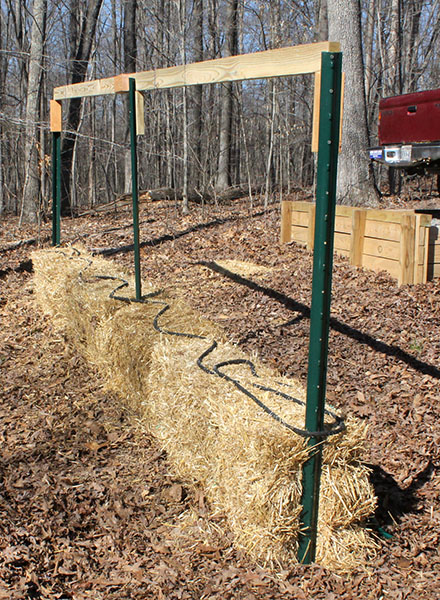
In addition to finishing the gravel-and-soil landscaping in the front yard, Louise planted our straw bale garden that has been composting for a month (can you say late start?).

Two days ago we installed a dozen 10' lengths of ¾" steel electrical conduit "posts" to support plastic fencing to keep deer away from our garden. Mike bored holes in our rocky ground with a planting auger in a battery-powered drill, and then pounded each post the remaining 4"-6" to have 18" buried, leaving 8½' to support the 7½' fencing.
Today we installed the fencing, attaching it to the posts with cable ties. We attached one end of the fencing to a 13th post at one end to act as a gate (the shorter of the doubled posts toward the right side of this photo).
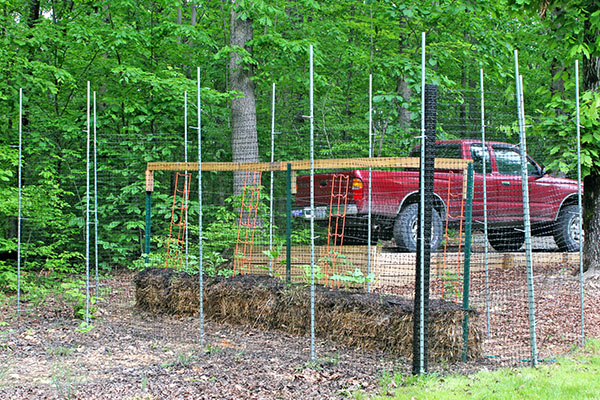
Plants are growing in our straw bale garden. Not evident in this photo are several blossoms on the tomato plant at the left end, and the cucumber plant at the right end.

The 2016 straw bale garden was only moderately successful, so this year we chose a location that gets more sun, and will have three rows of six bales, instead of one row, to spread out the plants.
Today we drove the truck and trailer to Lowe's and bought 18 straw bales. We also bought six more 7' steel fence posts to support the wire trellis for plants to climb.
We positioned the bales, and began the initial conditioning where we sprinkle lawn fertilizer and soak it with water so it sinks into the straw to begin the decomposition process.
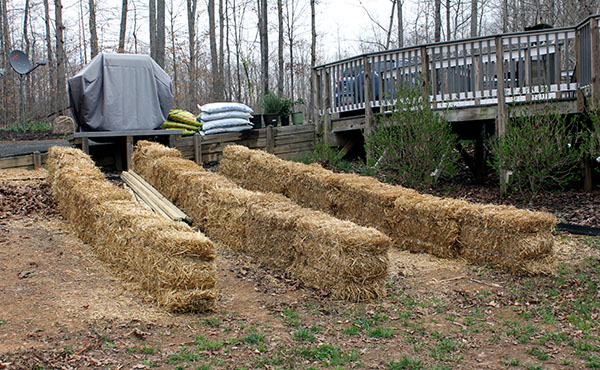
We drove nine 7' steel fence posts into the ground along the three rows of bales. Next we'll run several rows of galvanized wire between the posts to give the plants something to climb.

Yesterday we laid a soaker hose on each row of bales, and today Louise planted an assortment of seeds and bedding plants in the bales. She spread potting soil for the seeds, and made holes in the bales for the plants.
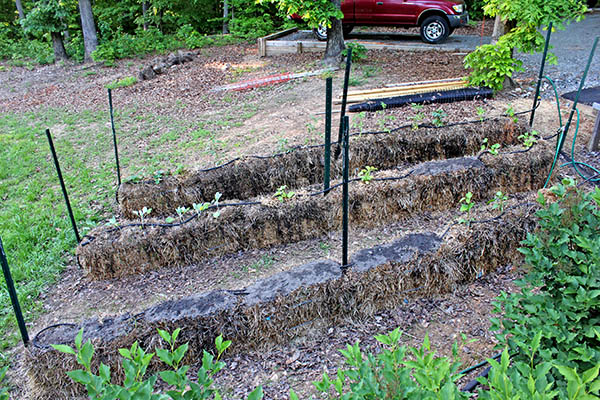
We continued the work Mike started yesterday – boring holes in the earth and driving 10' lengths of steel conduit for fence posts. Then we unrolled the 93' of plastic deer fence we bought and used last year, and cable-tied it to the posts. The fencing between the two righthand posts in this photo can be swung open for access into the garden.
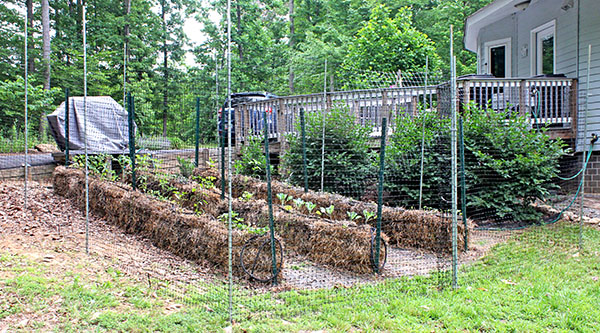
Our straw bale garden has been growing happily, and we've harvested tomatoes squash, green beans, and hot peppers. We're hoping for strawberries and lots more tomatoes in coming weeks.
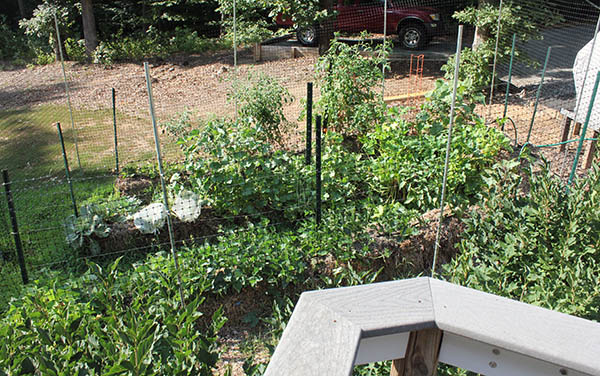
We planted a straw bale garden in 2018, but didn't take any pictures of it. We didn't even plant a garden in 2019, but a zucchini sprouted in the remains of the 2018 garden, and provided squash all summer long. Again, no photos.
This year, Louise cleaned out the debris, and we bought 18 straw bales and some landscape fabric to keep down the weeds between the rows.
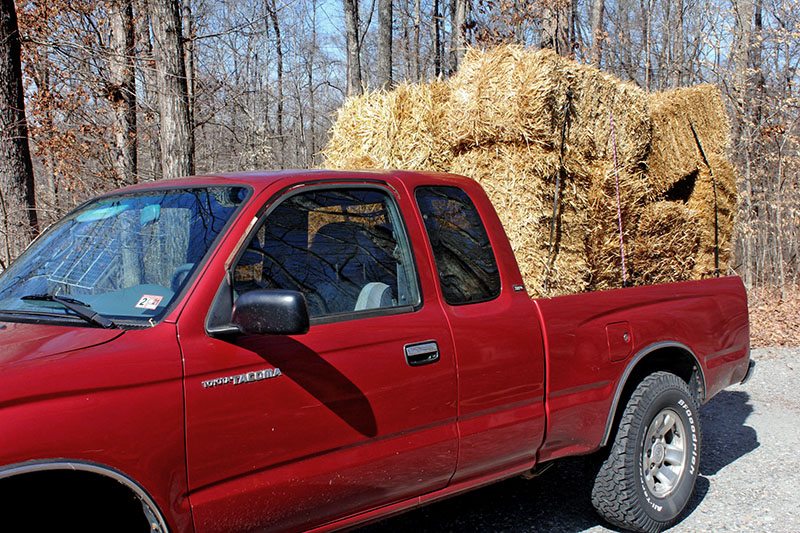
We laid landscaping fabric in the garden clearing to keep down weeds between the rows of straw bales. Mike replaced Sun-deteriorated plastic cable ties holding the deer fencing to steel posts. Here is the area ready for the 18 bales to be placed in three rows between the green posts.
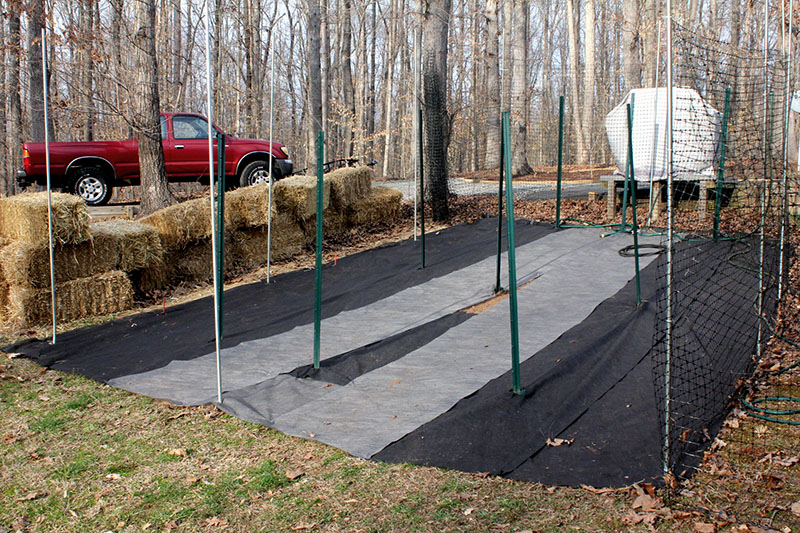
Today we drove the remaining ground staples to hold the landscape fabric in place, then Louise moved the 18 straw bales into the area, ready for us to spread lawn fertilizer on them to start the decomposition.
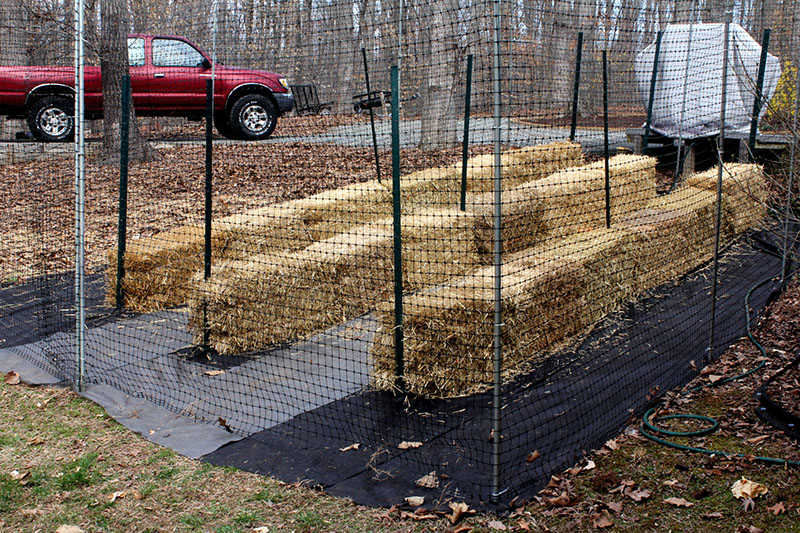
We snaked a soaker hose along the top of each row of bales, then Louise set the plants and seeds while Mike strung four lines of parachute cord over each row for the plants to climb.
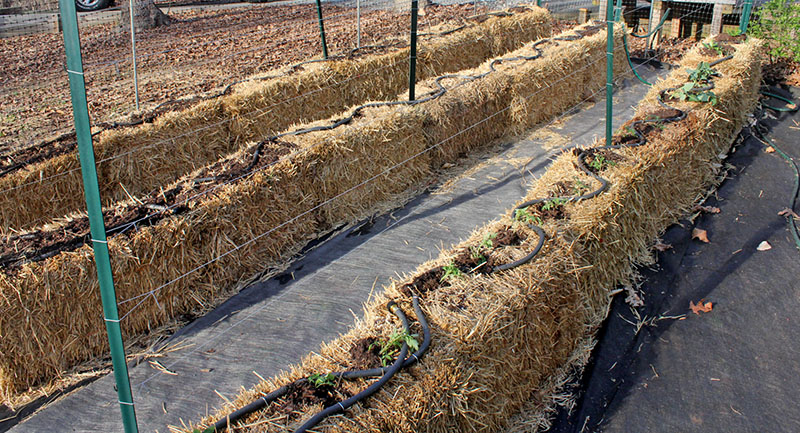
The straw bale garden has been growing for several weeks. It looks like broccoli is about ready to pick, and the tomato plants are coming along.
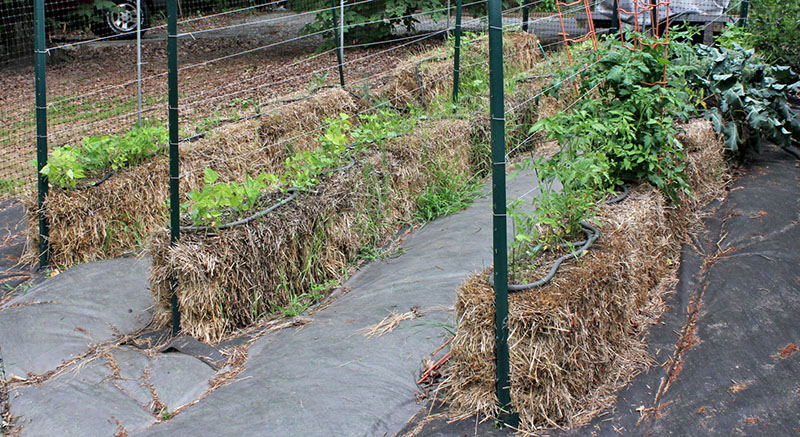
In 2021 we concluded a straw bale garden isn't worth the annual cost and preparation effort, so thi year we're installing a raised-bed vegetable and herb garden.
Updated May 23, 2023